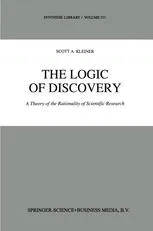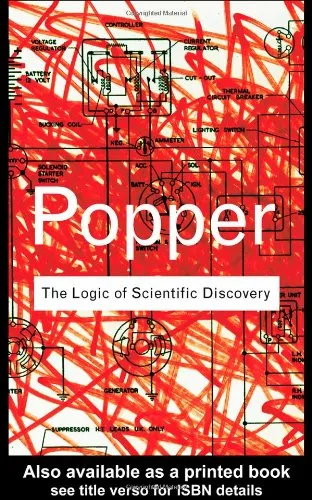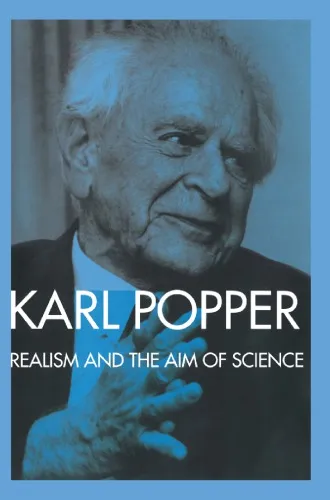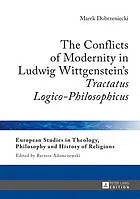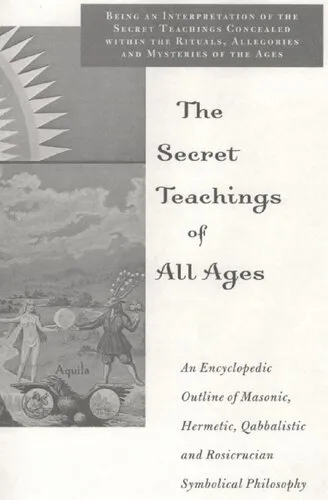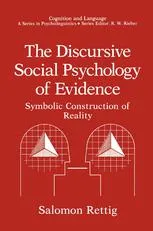The Logic of Discovery: A Theory of the Rationality of Scientific Research
4.4
Reviews from our users

You Can Ask your questions from this book's AI after Login
Each download or ask from book AI costs 2 points. To earn more free points, please visit the Points Guide Page and complete some valuable actions.Related Refrences:
Welcome to the captivating world of scientific inquiry as explored in "The Logic of Discovery: A Theory of the Rationality of Scientific Research". This book, written by Scott A. Kleiner, dives deep into the philosophical underpinnings of scientific methods, unraveling the rational processes that guide scientific discovery. As you immerse yourself in its pages, you'll encounter a thorough analysis of how discoveries are made and the inherent rationality behind them.
Summary of the Book
Kleiner's "The Logic of Discovery" presents an insightful examination of the scientific process, asking critical questions about how discoveries come to be recognized as rational. Through rigorous analysis, it challenges traditional perspectives on scientific methodologies, proposing that discovery is not merely a product of observation and hypothesis but involves complex layers of rational choices and contextual factors.
The book is structured to guide readers from foundational concepts to more nuanced discussions. It begins with an overview of historical and contemporary theories of scientific discovery, establishing a baseline understanding. Kleiner then introduces his own theoretical framework, emphasizing how rationality is interwoven with both the process and the broader context of scientific research.
As readers delve deeper, they'll encounter discussions on the nature of scientific intuition, the role of creativity, and how contextual factors influence scientific progress. Cleary articulated, Kleiner's arguments shed light on the multifaceted nature of research and suggest that discovery, while guided by reason, cannot be entirely divorced from the creative and unpredictable elements intrinsic to scientific inquiry.
Key Takeaways
- The Interplay of Rationality and Creativity: Discover how scientific research is a marriage of rationality and creative problem solving.
- Context Matters: Understand the significant role context plays in shaping scientific discoveries, challenging the idea of objective neutrality in science.
- Beyond the Hypothetico-Deductive Model: Explore Kleiner's criticisms of traditional scientific methodologies and his proposed advancements in understanding discovery logic.
- Rationality Redefined: Gain insights into a redefined notion of rationality that accommodates the complexities of scientific inquiry.
Famous Quotes from the Book
"Discovery in science is not a linear process but a dance of intuition and analysis, each step informed by the context in which it unfolds."
"The rationality of scientific research is as much about the questions we ask as it is about the answers we seek."
"In scientific discovery, context is not just background but a crucial player in the narrative of inquiry."
Why This Book Matters
"The Logic of Discovery" is an essential read for anyone interested in the philosophy of science, especially those curious about the intricacies of how scientific knowledge is constructed. It challenges readers to think beyond conventional methods and encourages the formulation of innovative approaches to understanding scientific discoveries.
This book is particularly important for researchers, philosophers, and students of science, as it provides a comprehensive framework that reconsiders the ways in which rationality and creativity interact in the research process. The arguments presented by Kleiner serve not only as a critique of existing paradigms but also as a foundation for future advancements in the philosophy of science.
Ultimately, "The Logic of Discovery" captures the dynamic essence of scientific inquiry, reminding us that discovery is not scripted but is a complex interplay of factors that each have their own rational contributions. It's a pivotal work that helps us to appreciate the deeper rational structures that enable scientific progress.
Free Direct Download
You Can Download this book after Login
Accessing books through legal platforms and public libraries not only supports the rights of authors and publishers but also contributes to the sustainability of reading culture. Before downloading, please take a moment to consider these options.
Find this book on other platforms:
WorldCat helps you find books in libraries worldwide.
See ratings, reviews, and discussions on Goodreads.
Find and buy rare or used books on AbeBooks.
1543
بازدید4.4
امتیاز0
نظر98%
رضایتReviews:
4.4
Based on 0 users review
Questions & Answers
Ask questions about this book or help others by answering
No questions yet. Be the first to ask!
